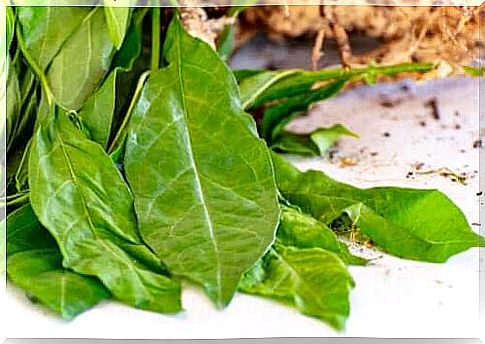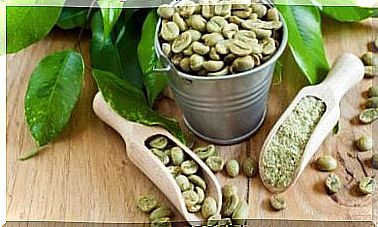Anamu: Properties And Contraindications
Traditional medicine uses anamu to relieve pain, decrease inflammation and improve memory. Discover here other benefits of this plant as well as its side effects, according to science.

In complementary medicine, anamu is used to decrease inflammation and pain, strengthen the immune system and fight certain chronic diseases. This herbaceous shrub is native to the Amazon rainforest, although it also grows in South America, Central America and the United States.
Mucura , apacina , tipi , guine and guinea hen weed are the other names by which we know the anamu or Petiveria alliacea, its scientific name. One of the special characteristics of the root and leaves is their strong garlic odor. According to an animal study, it is believed that this plant could improve brain function.
Properties and benefits of anamu
Anamu could bring different benefits. The most important are the following.
Antioxidant properties
Thanks to its plant compounds, anamu has antioxidant properties. It contains flavonoids, coumarins, triterpenes and sulfur. These antioxidants have the function of blocking free radicals.
According to a review published in Recent Patents on Inflammation & Allergy Drug Discovery, free radicals are associated with chronic conditions, heart disease, brain disorders, and diabetes.
Reduction of inflammation and relief of pain
This plant has been used for a long time and in a traditional way to relieve pain and reduce inflammation. According to research with mice from the Chinese Journal of Integrative Medicine , anamu reduces markers of inflammation like interleukin 6, prostaglandin E2, and tumor necrosis factor alpha.
In addition, Phytomedicine: International Journal of Phytotherapy & Phytopharmacology with analysis on animals, found that anamu can provide significant pain relief.
In contrast, research done with 14 humans who suffered from osteoarthritis pointed out that anamu tea was not as effective as other drugs. Therefore, it must be said that more studies in humans are needed to find out if it is effective.

Improved mental performance
A study with animals claimed that anamu had the potential to improve short and long term memory. The animals had, in fact, made progress in learning tasks.
Another confirmed that anamu improves long-term memory and reduces signs of anxiety, although she could not assure that it strengthens short-term one. However, more studies are needed in humans to corroborate its possible benefits.
Anamu: anti-carcinogenic properties?
One study indicated that anamu contributed to the death of cancer cells in the prostate, breast, lung, colon and pancreas, suggesting that the extract of this plant may be effective in neutralizing the evolution certain cancers.
This is due to the fact that anamu contains active ingredients like flavonoids, fatty acids, coumarins and sulfur. However, more human studies are needed. It is impossible to consider it as a first line of oncological approach.
Other possible benefits of anamu
Anamu can have other benefits, such as:
- Boost Immunity: A study found that certain compounds in anamu may boost the immune system. However, this research still needs to be deepened.
- Antimicrobial properties: thanks to sulfur, anamu has antibacterial and antifungal properties.
- Reduce anxiety: Although these are still animal studies, anamu is believed to decrease signs of anxiety and depression.
Instructions for use and contraindications of anamu
Anamu is over the counter and can be acquired in different presentations: powder, tinctures, dried leaves or capsules. There is currently not enough data to recommend an exact dose, due to the lack of studies in humans.
Despite the limited information, some supplement boxes recommend between 400 and 1250 milligrams per day. However, there is no guarantee on these quantities.
Apparently, consuming a small dose and in the short term could only have low toxicity. However, in the long term, there would be side effects like confusion, tremors, drowsiness, convulsions and restlessness.
You should take into account that anamu supplements are not subject to safety testing. Therefore, since they are not regulated, each manufacturer could manage different doses than those specified on the product label.
It is recommended to be particularly careful if it is taken at the same time as an anticoagulant or a medicine for heart conditions. Anamu already contains a small amount of a natural anticoagulant, coumarin.

Who should not consume it?
Since little research has been done on the human consumption of this plant, it is recommended to avoid its ingestion by pregnant or breastfeeding women and young children. If you are already taking medication, you should consult a doctor before consuming anamu in any form.
What to remember about the anamu?
Anamu is a herbaceous shrub that is characterized by a strong scent of garlic. In traditional medicine, it is used to relieve pain, decrease inflammation, strengthen the immune system, reduce anxiety, and improve mental performance.
Despite the many benefits attributed to it, this plant requires more studies to better understand its properties and possible side effects.









